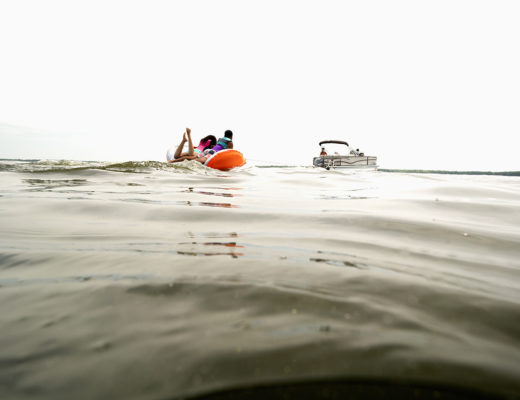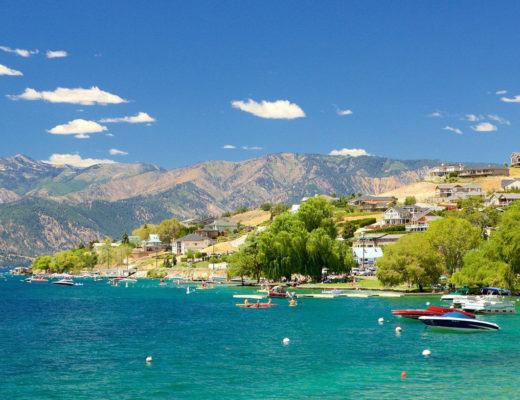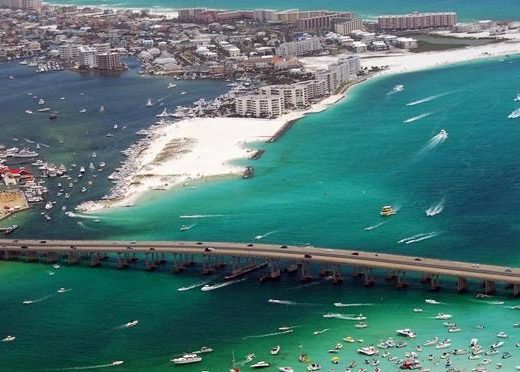Who needs a Boater Education Card in Maine?
If you’re between 16 and 18 years old, the Maine Department of Inland Fisheries and Wildlife requires you to complete a boating safety course if you want to operate a personal watercraft unsupervised. Without a boating safety certificate, you’ll need to be accompanied by somebody who’s at least 18 years old to operate personal watercraft on Maine waters.
Maine Life Jacket Requirements
State law requires each person on board to have a properly-fitting U.S. Coast Guard-approved serviceable life jacket. Also, boats longer than 16 feet must have a throwable PFD. The Maine Warden Service recommends that everyone wear his or her lifejackets while on the water.
- If your boat has any enclosed compartments or a false floor you must carry a Coast Guard approved fire extinguisher. Make sure it is charged and accessible.
- Always test your boat lights before the boat leaves the dock and carry extra batteries.
- Keep emergency supplies on board in a floating pouch complete with maps, flares, and a first aid kit.
- And make sure you have an anchor and can properly use it.
Maine Boating License Requirements for Personal Watercraft (PWCS)
To operate a personal watercraft, the following restrictions apply.
- No one under 16 years of age may operate a personal watercraft.
- Persons 16 and 17 years of age may operate a personal watercraft only if they:
- Have successfully completed an approved safety education course and carry on board proof of age and course completion or …
- Are accompanied on board by a person 18 years of age or older.
Boat Registration Requirements
The Maine IFW requires all motorized boats, including personal watercraft, used on state waters to be registered, with the following exemptions:
- Vessels currently registered in another state OR country with a properly displayed decal, not operating on Maine waters for more than 60 consecutive days.
- Ship lifeboats.
- Vessels displaying a current boat number from a recognized racing association that are strictly used for racing.
- Vessels owned by federal, state, or local governments and used only for official purposes.
- Military or public watercraft, except recreational watercraft.
Maine Laws For Negligent Or Reckless Boat Operation
It is illegal to operate any watercraft, water ski, surfboard or similar device in such away as to recklessly create a substantial risk of serious bodily injury to another person.
It is unlawful for the owner of a watercraft to negligently permit another person to operate the watercraft in violation of law.
A person is guilty of operating a watercraft to endanger if he operates any watercraft, water ski, surfboard or similar device so as to endanger any person or property.
Boat Speed Limits and Operation in Restricted Areas
No person may operate a watercraft at a speed greater than headway speed while within the water safety zone or within a marina or an approved anchorage in coastal or inland waters except while actively fishing. For the purposes of this section, “headway speed” means the minimum speed necessary to maintain steerage and control of the watercraft while the watercraft is moving.
The operator of any watercraft must operate at a reasonable and prudent speed for existing conditions and regulate the speed of a watercraft so as to avoid danger, injury or unnecessary inconvenience in any manner to other watercraft and their occupants, whether anchored or under way. The operator must consider the effect of the wash or wave created by their watercraft to waterfront piers, floats or other property or shorelines.
Boating and Alcohol
Any person who operates or attempts to operate any watercraft while under the influence of intoxicating liquor or drugs or a combination of liquor and drugs; or while having 0.08% or more by weight of alcohol in that person’s blood is guilty of a criminal violation.
The operator of any watercraft must complete a blood-alcohol test when requested to do so by a law enforcement officer who has probable cause to believe that the person operated or attempted to operate a watercraft while under the influence of intoxicating liquor; or when the person was the operator of a watercraft involved in a watercraft accident which results in the death of any person.
Maine Boat Accident Reporting Requirements
As the operator of a watercraft you are required by law to file a formal, written report of any collision, accident or other casualty or damage to any watercraft or other property of more than $300, by the quickest means of communication, to the nearest available law enforcement officer:
Within 24 hours of the occurrence if a person dies, disappears, loses consciousness, receives medical treatment, or is disabled for more than 24 hours,
Within 5 days of the occurrence if the accident involved property damage only.
Boating accidents include:
- Capsizing
- Collision
- Disappearance
- Explosion
- Falls Overboard
- Fire
- Flooding
- Grounding
- Sinking
- Struck by Boat/Prop (other than theft)
- Swamping
The operator of a watercraft which is involved in a collision, accident or other casualty must render all necessary aid and assistance to all persons involved, so far as can be done without serious danger to his/her watercraft, crew and passengers, if any, as well as give their name, address and watercraft identification to any person injured and to the owner of any property damaged.
Maine Department of Inland Fisheries & Wildlife Contact Information
For more information about safe boating in Michigan, contact the Maine Department of Inland Fisheries & Wildlife.







There is One comment
Pingback:sucralose keto
Comments are closed.